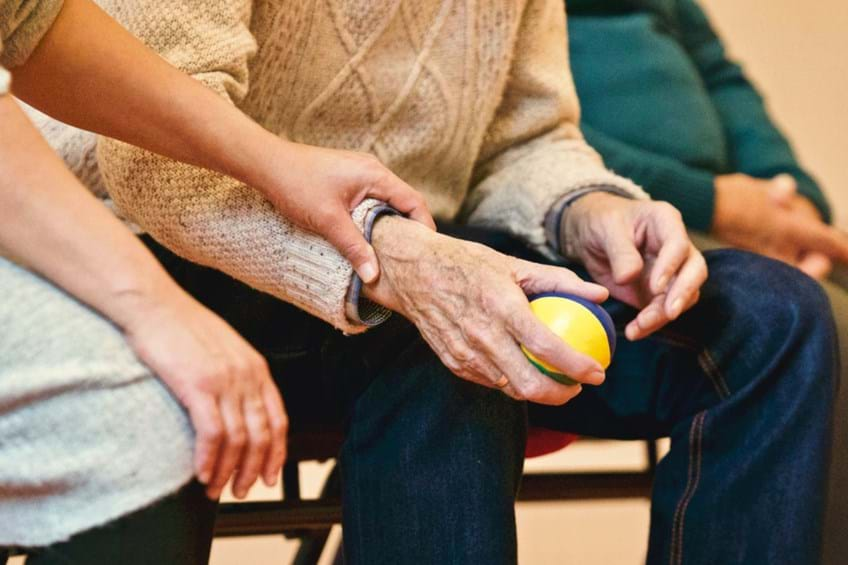Wills Probate and Trusts

What Is a Will
WHAT IS A WILL?
A will is a formal document setting out your wishes as to what is to happen to your assets after you die and appointing people called Executors who put those wishes into effect
WHY MAKE A WILL?
Virtually every adult should make a will for the following reasons: –
- You state who is to receive what when you die. If you do not then there are rules as to who will inherit your assets and those people may not be the people you would choose
- It is particularly important if you and your partner are not married, if you have step children, if you have no children, if you do not have close relatives, if you no longer live with your spouse/partner, or if you do have close relatives you do not get on with
- You can make gifts to friends and/or charities
- You can state when beneficiaries (especially children) are to inherit. If you do not then they would be able to take assets on reaching eighteen years which many consider too young
- You appoint the Executors
- You can appoint Guardians for your infant children
- You can make sure dependants such as disabled children are looked after financially
- You can arrange the gifts in a tax efficient way.
- You can make sure that those the law says you must provide for (people who are financially dependent on you) are provided for thus avoiding expensive litigation when you die
- If appropriate you can provide for assets to be held in trust so that for example someone has the income during his/her lifetime but stipulating who will get the assets when he/she dies.
- You can state whether you wish to be buried or cremated
YOU STATE WHO IS TO RECEIVE WHAT WHEN YOU DIE
If you die without a will the law imposes rules (called the Intestacy Rules) stating how much each of your relatives will receive. Everything you have is turned into cash and that is divided out between those relatives. Depending on the value of the estate , a surviving spouse or civil partner and children are normally the main beneficiaries.
By making a will you can leave what you like to whom you like. For example
- If you and your partner are not married, your partner will receive nothing under the Intestacy Rules
- You can leave gifts to friends and/or relatives who would not receive anything under the Intestacy Rules
- You can leave money to Charities if you wish
- You can leave specific assets to specific people. This can be very important if you own a house or land or an interest in a business.
- It is up to you to decide how much goes to whom. You can leave more to your spouse/partner than he/she would get under the Intestacy Rules; you can give different children different shares if that is what you want
- You can leave assets to be held on trust. This can become complicated but can be useful if you have an incapacitated child; feel a beneficiary will waste what he/she receives or sometimes for tax reasons.
- You can provide that a beneficiary will not receive what you wish to give them until a specified age. Under the Intestacy Rules the age is eighteen. Many people feel that is far too young to receive substantial sums of money.
- If you wish someone to receive a specific article – such as a piece of jewellery from you – you can do so.
- You can provide that an asset will go to one beneficiary but require him/her to pay a sum of money to another beneficiary to even matters up
The only restriction is that the law requires you to make reasonable provision for your dependants. In the vast majority of cases that is exactly what is done but sometimes that does not fit with people’s wishes. This is a complicated area of law which, in the vast majority of wills, is not an issue but we can guide you through this if necessary.
When making a will you need to decide if you want to leave a specific item to a beneficiary; a specific sum of money (called a legacy) or a share in the whole (called a residuary gift). It is most common to want to leave legacies to friends and/or Charities and residuary gifts to spouse/partner and or children. Many grandparents want to leave legacies to grandchildren.
In many cases much of the above may not be relevant to you. You do not have to finalise your wishes before you come to see us. Part of the process is to discuss matters with you so that you can decide what suits you. You may however wish to use the basic information sheet to help you decide what you want to do. Writing down a few ideas often helps but if you do not wish to do so that is no problem.
EXECUTORS, TRUSTEES and GUARDIANS
The “Executors” are the people you appoint in your will to make sure that your wishes are followed. They collect in your assets, pay any debts you may have and distribute your assets as you stipulate.
The “Trustees” are the people who will look after any assets you leave in trust on behalf of the beneficiaries and are often – but not always – the same people as you appoint as your Executors.
It is perfectly acceptable to appoint as Executors people who will also be beneficiaries. For example, it is common to appoint your spouse/partner and children as Executors and divide your assets between them.
In some cases where matters are more complicated or children are too young you may appoint friends or other relatives.
It is vital that the persons you appoint are people you trust and know to be honest. It is also sensible if they are younger than you!
If you have no one suitable to appoint, do not worry as we can, if necessary, provide someone to do it for you.
The “Guardians” are the people you appoint to look after the welfare of any infant child you may leave if both you and your spouse/partner dies. If you do not then that responsibility will pass to the local Social Services who will try their best but may not do what you would want to have been done.
In many ways this is the most important role under any will. A Guardian should be someone you know very well, someone you would be happy to leave your children with and who will bring up your children as you would have done yourself. If you have strong religious beliefs you may want to choose someone with the same views.
Many people immediately think of using their parents as Guardians but do remember they are older than you and have been through having teenagers once before!
A Guardian can also be an Executor.
USE OF TRUSTS
In the vast majority of cases Trusts are not relevant. However in some situations they may be desirable or even necessary. Examples could include:-
- If the person you want to benefit cannot look after his/her own money. This may be incapacitated children or even a spouse/partner suffering from dementia
- If you would leave young children if you died suddenly
- If you are not sure who should receive what. For example you run a business but it is too early to know which of your children will come into that business
- If you want someone to have the income but make sure the capital on his/her death goes to whom you wish it to go to. This is sometimes the case with second marriages
- If there are tax reasons for using trusts
In all of these cases the assets are transferred to the names of the Trustees and they manage them in the interests of the beneficiaries.
The income may go to one person as of right or the Trustees may have a discretion as to how much they pay to whom. Similarly the capital may go to a named individual(s) or the Trustees may have discretion as to how much they pay to whom.
Trustees to have to abide by many rules which is why the choice of Trustees is so important. If you want them to have discretion as to who will get what you really have to be very careful in that choice.
This does mean that there is an administrative cost – such as filing tax returns and keeping accounts – to using trust funds which is the main reason why they are not suitable for most people.
Use of a trust fund is a big step and needs to be thought about very carefully. If you think your circumstances are right for the use of a trust fund we will discuss the situation in detail with you; explain in more detail what a trust entails, the different types of trust and help you come to the best decision for you and your beneficiaries.
TAX PLANNING
There are four important points to remember:-
- Tax planning is not the main purpose of a will – that is to provide for your family – it can however affect the way you do things
- You do not have to be rich to make tax savings
- Whenever you do tax planning you must look at all relevant taxes
- Remember tax laws do change. Wills that have an element of tax planning in them need reviewing frequently to make sure they are in line with changes in taxation.
The main tax that is relevant when making a will is Inheritance Tax. Like all taxes, it is complicated but many people have insufficient assets to come into a charge to Inheritance Tax. The first £325,000.00 (known as the nil rate band) for each person is free of tax and a married couple or civil partners can now provide that any part of the nil rate band unused on the first death is transferred to the surviving spouse/partner.
From April 2017, an additional nil rate band was introduced known as the “Residence Nil Rate Band” which can apply where a main residence is being left to a direct descendent. Please see our separate article, “Inheritance Tax and the new Residence Nil Rate Band” for further details.
Additionally some assets such as farmland and many business assets are either given 100% or 50% relief.
The rules are complicated and it is easy to fall into some well known traps so if you think Inheritance Tax may apply to you please contact us to discuss it. There are frequently things that can be done – not necessarily in your will itself – to improve the situation.
Income Tax, Capital Gains Tax, Stamp Duties and sometimes even Corporation Tax may be relevant – especially if you are thinking of using trusts and you will need expert help which we can provide to understand what is involved and what the best course of action for you will be. If you have an accountant we will if you wish – and we would recommend it – work closely with him/her to make sure what is done is best overall.
We will also make sure that we do not let tax planning get in the way of making sensible provision for your family.
HOW DO I MAKE A WILL?
Making a will does not have to be complicated or expensive. You simply need to telephone us on 01775 722261 and make an appointment. It may assist if you complete a Wills Information Sheet. Please click on this link for details.
If you are married or have a partner in most cases we recommend that you both make wills at the same time.
To arrange an appointment simply ring us on 01775 722261 or email jane.mawer@maplessolicitors.com or jamie.dobbs@maplessolicitors.com or faye.blair@maplessolicitors.com or write to us at 23 New Road, Spalding, Lincolnshire PE11 1DH

Coffee Morning and Pop-Up Clinic
Join us at The Ruby Hunt Centre, Church Street, Donington, PE11 4UA on Monday 11th March 2024 between 10am and 12pm for a free coffee morning and pop-up clinic to talk about Wills, Powers of Attorney and financial planning for Care Homes.
If you cannot join us for the coffee morning, please contact one of our lawyers in the Wills and Probate Department to discuss a home visit.
Or telephone the office 01775 722261 and ask to speak with one of the team.
We look forward to seeing you there.

Claiming against the Estate of a Deceased Person
Introduction
If a family member dies and either as a result of the deceased’s Will or the intestacy rules (which govern who gets what when a person dies without leaving a valid Will) you do not get an inheritance or an inheritance that you consider to be insufficient, you might still be able to make a claim/further claim against the estate of that deceased person under the Inheritance (Provision for Family and Dependants) Act 1975 (“the Act”).
The Grounds for the Claim
There is just one ground upon which you can make such a claim namely:-
“That the disposition of the deceased’s estate effected by his Will or the law relating to intestacy or the combination of his Will and that law, is not such as to make reasonable financial provision for the applicant.”
The Act does provide some guidance on “reasonable financial provision”.
Reasonable Financial Provision
Expectations of reasonable financial provision will depend upon the type of applicant.
- Spouse
Unless at the date of death there was in force a separation order and the separation was continuing, the standard of reasonable financial provision shall be:-
“Such financial provision as it would be reasonable in all the circumstances of the case for a husband or wife to receive, whether or not that provision is required for his or her maintenance.”
If there is a separation order in force and separation is continuing, then the standard will be:-
“Such financial provision as it would be reasonable in all the circumstances of the case for the applicant to receive for his maintenance.”
When the deceased and the survivor were engaged in matrimonial proceedings that have not resulted in an order for ancillary relief at the date of death (i.e. financial issues were outstanding) and an application is made for reasonable provision within 12 months of that death, the Court will in effect entirely ignore the fact that there was a divorce.
This will not apply to a separation order situation unless, at the date of death, the order was in force and the separation was continuing.
- Civil Partner
Similar provisions apply in respect of these applicants as per spouses.
- Other Applicants
The standard here is the same as that for a spouse/civil partner with a separation order, namely, such provisions as would be reasonable in all the circumstances of the case for the applicant to receive for their maintenance.
Categories of possible applicants here include former spouse/civil partner who has remained un-married/not in a civil partnership, a co-habitee, a person who prior to the date of the death of the deceased was wholly or partly maintained by the deceased (and not necessarily a family member), a child of the deceased and any other child treated by the deceased as a child of the family in relation to a marriage/civil partnership.
Factors to be considered
In determining an application, the Court must consider factors which may vary according to the status of the applicant. There are some common factors as follows:-
(i) The applicant’s future financial needs and resources (including earning capacity).
(ii) The future financial needs and resources (including earning capacity) of any other applicant.
(iii) The future financial needs and resources of any beneficiary (including earning capacity).
(iv) The deceased’s obligations and responsibilities towards any applicant or beneficiary.
(v) The size and nature of the deceased’s net estate.
(vi) The physical and/or mental condition of the applicant or any beneficiary.
(vii) Any other matter the Court considers relevant (including the conduct of any party).
If you wish to consider making a claim against an estate, or you are a beneficiary or executor in effect facing a claim from another party then please contact Daven Nagen on 01775 722261 or email daven.naghen@maplessolicitors.com or call in or visit our offices at 23 New Road Spalding Lincolnshire PE11 1DH.
If you want advice in making your Will in order to reduce or eliminate the risk of such claims being made against your estate then please either contact one the Wills, Probate & Trusts Team:
Jane Mawer on 01775 722261 or email jane.mawer@maplessolicitors.com
Faye Blair on 01775 722261 or email faye.blair@maplessolicitors.com
Jamie Dobbs on 01775 722261 or email jamie.dobbs@maplessolicitors.com or visit our offices at 23 New Road Spalding Lincolnshire PE11 1DH.

Free Wills Month in October
Maples are pleased to announce that they are taking part in Free Wills Month throughout October. If you are aged 55 or over you can make your Will for free and have the opportunity to help one or more of the sponsoring charities in the process. Appointments are limited in number and are allocated on a first come first served basis.
For further details please contact a member of our Wills and Probate Department:-
Jane Mawer- jane.mawer@maplessolicitors.com
Jamie Dobbs- jamie.dobbs@maplessolicitors.com
Faye Blair- faye.blair@maplessolcitors.com
Or telephone the office 01775 722261 and ask to speak with one of the team.

A Guide to NHS Continuing Healthcare
When a friend or relative goes into full time care, whether this is due to accident, illness or a disability, this is a stressful time for them and for those around them. For the most part the priority is making sure that the individual is receiving the care that they need however the financial issue of how they shall pay for their care usually causes background worry for everyone concerned.
There have been many newspaper articles recently pointing out that, in certain cases, the NHS should have been responsible for paying for a person’s care and that they have not done so. This had led some to recover costs back from the NHS where they should have been funded and were not.
Many enquiries have therefore come to us from individuals asking whether this can be achieved for their friend or relative and what the criteria actually is and what is meant by NHS Continuing Healthcare.
1. What is NHS Continuing Healthcare?
NHS continuing healthcare is the name given to a package of care which is funded solely by the NHS for individuals outside of hospital who have ongoing health care needs. It can be received in any setting outside of hospital such as a care home or the person’s own home.
If you are found to qualify for NHS continuing healthcare then the NHS will pay for your healthcare regardless of your income or your savings. It is not therefore means tested. If you in a care home then this will include your care home fees including board and accommodation.
2. Who is eligible for NHS Continuing Healthcare?
Anyone over the age of 18 who is determined to have a ‘primary health need’. It is not dependent on a particular disease, diagnosis or condition. A primary health need is assessed by looking at all of an individuals care needs in respect of their nature, complexity, intensity and unpredictability.
3. The Assessment Process.
The assessment process should automatically be triggered if a person is discharged from a hospital into a care home. Other triggers for the assessment should be if there is a deterioration of a person who is in a care home in order that their needs have changed significantly. If the assessment is not automatically triggered within the system it is possible for the individual to remain un-assessed even if they should qualify for the NHS Continuing Healthcare. If the family are not aware that an assessment should have taken place then no challenge will be made to the position and the individual will continue to pay for their own care.
The first step is the Checklist Tool which is a screening tool completed by health or social care staff to judge whether it is appropriate to undertake a full assessment. If this checklist indicates that a full assessment should be carried out then a team consisting of the district nurse, social worker, care home member and any other professionals involved in the care shall meet and complete a ‘Decision Support Tool’.
This looks at eleven different types of need that an individual may have to determine whether they have a ‘primary health need’. For example, mobility, nutrition, cognition and behaviour. If a primary health need is establish then NHS continuing care should be awarded.
This should be reviewed after three months and then again annually. Further assessments can be called for if it is thought that the needs have changed.
4. What if I am not eligible for NHS Continuing Healthcare?
If the individual does not qualify for the full NHS Continuing Healthcare but it is agreed that they have some needs, the NHS may still pay part of a package of support leaving the individual to cover the remaining costs.
5. What If I am not happy with the outcome?
If you feel that a full assessment should have taken place but did not, or if you disagree with the outcome of the assessment it is possible to request an independent review of the decision through the clinical commissioning group local to the individual.
6. How can Maples Solicitors assist in this process?
If you are unsure whether your friend or relative has been assessed for NHS continuing healthcare and what the outcome of that assessment was, we can assist you in uncovering this information from the care home or doctor involved.
We can advise you whether your friend or relative does have a primary healthcare need based on the criteria from a review of their records. If we believe that they do have a primary healthcare need we can assist you through the process of calling for an assessment to take place or for the appeal of an assessment to take place.
If you want advice on this subject please contact one of our Private Client Team as follows:- On 01775 722261, or email jane.mawer@maplessolicitors.com or faye.blair@maplessolicitors.com or jamie.dobbs@maplessolicitors.com

What are the Risks of DIY Probate?
When a family member or friend passes away there are many steps that need to be taken by Personal Representatives in order to administer their estate. These may be practical arrangements such as re-homing any pets or clearing the property but could also involve legal matters such determining who are the beneficiaries, obtaining a Grant of Probate (or Letters of Administration if no Will has been made, collectively known as a Grant of Representation) and finalising the tax affairs.
Whilst it is possible to administer an estate and obtain a Grant of Representation without instructing a lawyer, there are considerable risks involved. The role of a Personal Representative, whether that be an Executor or an Administrator, is a very important role and many duties and responsibilities are placed upon them. A Personal Representative must tread very carefully when administering an estate to ensure that they are not breaking the law and not putting themselves at risk.
If a Personal Representative makes a mistake during the administration, no matter how innocent the mistake may be, then the Personal Representative could be personally liable. For example, if the beneficiaries of a Will are unclear or there is no Will then the correct beneficiaries must be determined. If the incorrect beneficiaries are paid then the Personal Representative could be personally liable to correct beneficiaries. Equally, if the beneficiaries have been paid and, at a later date, a further invoice is received then the Personal Representative again could be personally liable.
A Personal Representative may also be personally liable for something they have not done, which may be something they did not know was even necessary.
If there is any inclination that an estate may be insolvent (and it must be borne in mind that this may not be obvious at first as details of credit cards and loans, for example, may only materialise later during the administration) then Personal Representatives must take great care. In an insolvent estate there is an order of priority of who should be paid first and if this order is not followed then creditors may pursue the Personal Representatives for the outstanding debt.
Personal Representatives who are administering the estate themselves may not be aware of the provisions of the Inheritance (Provision for Family and Dependants) Act 1975 whereby certain categories of people are allowed to bring a claim against the estate if reasonable financial provision has not been made for them. A Personal Representative may proceed to administer and distribute an estate without realising that someone could potentially bring a claim against the estate and if such a claim is made and is successful, if the estate has been distributed then again the Personal Representative could find that they are personally liable.
If an estate is taxable then it is the Personal Representative’s responsibility to calculate the inheritance tax payable to H M Revenue and Customs if no lawyers are instructed on their behalf. Such a calculation can become complicated, particularly where certain exemptions and reliefs may be applied, but without detailed knowledge of these exemptions and reliefs a Personal Representative could pay more tax than necessary. On the other hand, if tax is incorrectly calculated and too little tax is paid then financial penalties could be imposed for which the Personal Representative could be liable.
Many Personal Representatives are unaware that their responsibility also extends to ensuring the deceased’s income tax affairs are finalised to the date of death and for the period of the administration of the estate. This involves researching the deceased’s income and potentially completing income tax returns. Again, any mistakes made in this regard could result in penalties imposed by H M Revenue and Customs and, again the Personal Representative may be personally liable.
It is worth keeping in mind that it may be possible for certain strategies to be exercised to reduce any tax due, whether that be inheritance tax or possibly capital gains tax, or even considering the possible future tax implications of surviving family members.
This article points out just some of the risks involved for administering an estate without legal assistance. To summarise, there are many situations where a Personal Representative may find themselves personally liable or there are areas where having a lawyer to assist may either save the estate money at this stage or in the future. It is therefore likely that administering an estate yourself rather than instructing a lawyer is a false economy that could become very costly indeed.
It is always worth speaking with one of our lawyers who can provide a quote for our involvement in the administration of an estate. On many occasions, clients have advised that they thought our costs would be much more than the quote provided having read articles online of legal fees being many thousands of pounds. It is only the particularly complex estates that involve the higher legal fees.
To discuss the administration of an estate, obtaining a Grant of Representation or any other matter relating to the affairs of a deceased person, please contact one of our lawyers in the Wills, Lasting Powers of Attorney and Probate Department:-
Jamie Dobbs- jamie.dobbs@maplessolicitors.com
Jane Mawer- jane.mawer@maplessolicitors.com
Faye Blair- faye.blair@maplessolcitors.com
Or telephone the office 01775 722261 and ask to speak with one of the team.



